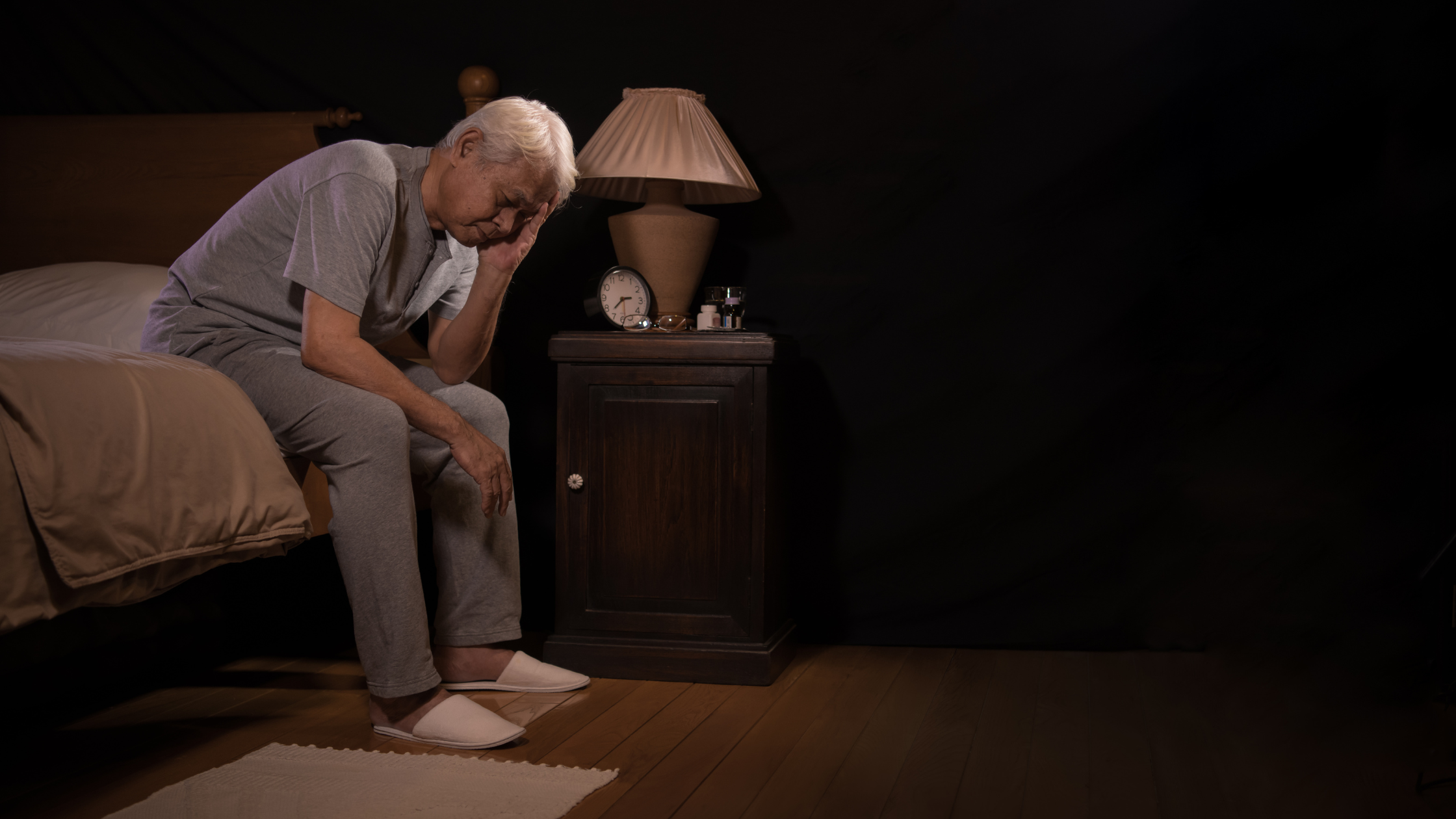What Is Memory Care and Where to Find It?
Written by TYE Medical on Mar 18th 2024
Usually found within assisted living facilities and nursing homes, memory care offers specialized services for people with Alzheimer’s and dementia. Demand for this type of care is rising even though the cost can be prohibitive. But many find that their loved ones are better able to get the care they need in facilities that specialize in providing expert care to those in various levels of cognitive decline.
If you are considering memory care for your loved one, it’s worth considering what these facilities offer as you weigh the associated costs. Learn about assisted living and nursing home facilities that expertly meet the needs of people with Alzheimer’s and dementia.
Article | Dementia Diagnosis: First Steps for Caregivers
What Is Memory Care?

According to the National Council on Aging, a memory care unit or facility “provides specialized residential care for people living with Alzheimer’s disease and other forms of dementia.”
Some memory care facilities are stand-alone while others are part of a larger senior living community. The latter can mean that memory care patients are integrated into a larger facility to varying degrees. Often, the stand-alone facility or a memory care wing in a larger community is secured with locked doors to keep wandering residents safe.
Either way, whether stand-alone or integrated, research shows memory care results in better patient outcomes for patients in cognitive decline. According to the National Institute on Aging, when over 90% of patients in a nursing home have dementia, they receive better care. When a smaller proportion are in significant cognitive decline, care suffers.
This suggests that focus and specialization is key to memory care success.
Is Memory Care Different in Assisted Living VS Nursing Homes?

Both of these facilities can offer memory care. The main difference is that your loved one will have more help with daily activities and more medical care in a nursing home. Memory care units, whether stand-alone or integrated as wings in a larger community offer round-the-clock supervision and care. About 14% of assisted living communities offer memory care units.
Assisted living is best for seniors who are more independent and with fewer medical needs. They offer help with activities like bathing, dressing, and cooking. Residents have their own apartments or rooms and share common areas and dining rooms. Assisted living communities also offer meal and laundry services, medication management, and recreational activities. All of these things can be enjoyed by residents with more physical and cognitive independence.
You can consult with individual facilities to determine their specific level of care and what assistance is offered.
But in either case, facilities that offer memory care would provide the same basic features:
- Secured units
- Consistent caregivers who establish relationships
- Activities and stimulation to aid in cognition and memory
How Expensive Is Memory Care?

As you probably expected, memory care costs more than typical nursing home care. It’s a heightened level of expertise that demands a higher cost. But you may have some options to assist in paying for it.
- If your loved one qualifies for Medicaid, it’s possible some dementia care costs could be covered.
- Medicare doesn’t usually cover long-term care in a nursing home, because the care is associated more with daily activities than medical treatment.
- Medicare Special Needs Plans may offer benefits for people with dementia.
You can compare memory care facilities using a state-by-state list compiled by SeniorHomes.com. You’ll notice a range from as low as $3,233 to as high as $5,642.
Memory care costs typically vary based on:
- Location
- Type of apartment
- Size of apartment
- Offered services
- Amenities
- Level of care required
Before making your final decision, consider all the possible financial assistance that could be available to you.
What to Expect from Staff in Memory Care Facilities
Recommended ratios of staff to patients vary between states. But adequate staffing is critical for good memory care as each patient requires proper attention. Therefore, an ideal ratio is about 1 staff to 6 patients. Staff usually include caregivers, nurses, therapists, housekeepers, activities directors, and hospitality staff.
Signs of an inadequate facility:
Strong smells: Whether good or bad, strong smells often indicate poor housekeeping or not enough housekeeping staff. Bad smells are an obvious indication, but watch out for strong good smells too. Facilities sometimes use strong air fresheners to mask odors.
Constant television: If the TV is always on or residents spend a majority of their time watching it, it could mean the activities program at the facility is weak. They should have a schedule that includes many engaging activities. Television contributes to cognitive decline and should only be watched for a small portion of the day.
Unhappy, distracted caregivers: Relationships are crucial for memory care. Instead, look for a facility with caregivers that primarily show love and respect to residents and families. This is a sign of a great facility
Memory care facility evaluation questions:
- Is the staff positive and respectful when communicating?
- Does the staff treat residents like adults, offering them privacy and dignity?
- Is the staff skilled at redirection, shifting residents’ attention in a way that keeps anxiety or anger at a minimum?
Nighttime Memory Care

Professional memory care staff should be equipped to handle a common dementia struggle called sundowning. This is the term used to describe dementia symptoms like behavior disturbances and confusion that peak in evening and night hours.
Facilities who are prepared to care for patients with sundowning usually incorporate:
- Natural light for living spaces during daytime hours
- Sunrooms or sun lamps
- Blackout blinds at nighttime and nightlights with dim or muted light
Memory care staff should receive special training in how to help patients with sundowning syndrome.
Sensory Stimulation Therapy for Memory Care

A memory care facility understands that engaging residents often requires reaching them through their senses. This means that activities often incorporate the senses in ways that help both explore (stimulate) and relax. Stress and anxiety can trigger dementia patients and make their symptoms worse.
One type of sensory therapy called Snoezelen, combines exploration with relaxation. It’s a popular type of therapy for memory care patients. It’s multisensory, providing an experience that involves light, sound, smell, and touch therapy.
Usually, a facility will have a room dedicated to sensory stimulation therapy where residents can go as designated or as needed. Some example therapies included:
- Scrapbooking
- Music and brain games
- Exercise programs (walking, gardening, chair yoga)
- Spiritual activities (meditation, singing, reflective nature walks)
- Lifeskill activities like cooking
All of these activities combine sensory stimulation with relaxing activities that benefit and sooth dementia patients.
When Is It Time for a Memory Care Facility?

Just because your loved one has dementia doesn’t mean you must be moved to a memory care facility. Safety is the biggest reason families move their loved ones into a memory care unit. There may come a time when a dementia patient needs to be protected from falls and from the dangers of wandering in confusion.
Perhaps you're wondering if your loved one is in the early stages of dementia. How do you identify it? Here are some common signs other than memory impairment:
- Combativeness
- Aggression
- Loss of interest in activities
- Incontinence
- Poor hygiene
- Sudden falls
- Wandering, getting lost
- Sleep changes
- Repeating stories within minutes
- Mobility issues
The memory care facility typically performs an assessment of physical, medical, and cognitive abilities before a patient is moved into their facility. This helps ensure the right level of care.
You might also consider a memory care facility if your loved one is struggling to remain social, active, or engaged. You might notice their quality of life declining, especially if they live alone. In these cases, it might be time to consider a memory care facility to keep them active, social, and engaged in ways that will slow cognitive decline and improve their overall well-being.
Transitioning to Memory Care

It’s important to be sure a change is needed. Moving your loved one with dementia away from their daily routine or existing community can be very disruptive to their life. This can be very taxing and temporarily increase dementia symptoms. This is especially true if there are people in their existing environment that they are very attached to, like a friend, therapist, or caregiver. Additionally, there is a greater risk of sudden falls and confused wandering when in an unfamiliar place.
Transitions are temporary, and there are ways to ensure it goes more smoothly. The key is verifying the change is necessary at that time.
Individualized Needs

Dementia care needs differ according to the patient, which means you’ll need to pinpoint the specific cares of your loved one and match them with a facility. To help you get started, consider the following:
- Input from your loved one’s doctors
- Amount of care needed
- Attitude and atmosphere of the facility
- Types of amenities and activities that interest your loved one
Be sure to tour at least three facilities before making a final decision.


